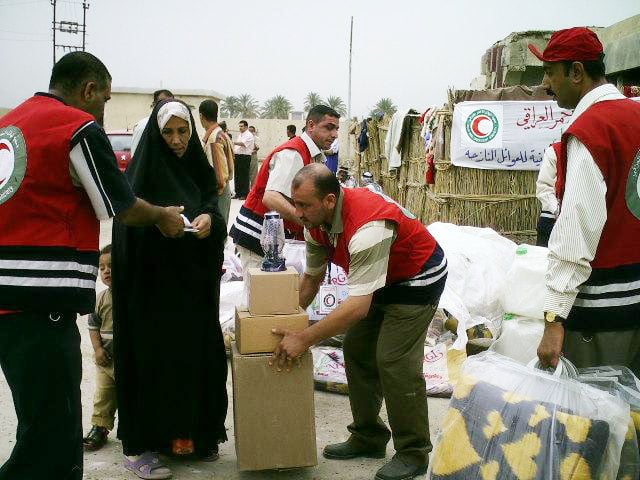"We asked for 40 billion Iraqi dinars [US$34.2 million] for the ministry's [2009] investment budget but we were told that only eight billion [$6.85 million] could be allocated. This could prevent us from achieving our goals for this year," said Ali Shaalan, head of the Ministry's planning directorate.
"A top priority is to buy land for housing projects. We have already finished feasibility studies and designs for some of them, and we laid the cornerstone of one of them last March in the southern province of Mayssan," Shaalan told IRIN. Mayssan is about 350km south of Baghdad.
Shaalan said other projects, such as one planned in Basra Province, could be postponed until 2010 "if there are insufficient allocations this year".
In November 2008 the government cut $13 billion from its draft budget in light of falling oil prices (now down to around $47 a barrel from a summer peak of $147). The government may have to revise its budget for a third time, as the second draft was based on an assumed oil price of $62 a barrel.
Ambitious plans
In February 2008 the ministry unveiled ambitious plans to build an unspecified number of residential compounds nationwide. Each compound would have 50 buildings and each building six apartments - allowing some 300 families to buy a unit.
Schools, markets, mosques, electricity and water plants, health centres, police stations and other facilities were to have been built on each compound, but these plans are now on hold.
Shaalan said the ministry had a five-year plan, which it still hoped to implement, in which some 514 billion dinars (US$439.32 million) would be invested. Mayssan compound will cost $5 million and will be built on 8.09 hectares. The Mayssan project has started, but it is now not sure when it will be completed.
He said no project was designed to change the demography of a province. Accommodation would be provided to both those who became internally displaced persons (IDPs) after 2003 and to expatriates willing to return.
Private sector to the rescue?
 Photo: DVIC  |
| In February 2008 the ministry unveiled plans to build residential compounds nationwide, which would include facilities like schools, markets, etc |
"The government shrugged off calls that it should make use of international financial aid and record oil prices to pump money into housing and infrastructure projects. Instead it offered financial aid with no long-term plans," Nadhum said.
"Now, I think the best way forward is to get local or foreign investors involved," he said.
The budget cutbacks, and subsequent postponement of some projects, disappointed Adel Hamza Salih al-Amiri, a 55-year-old father of four who is an IDP in a camp. He was dreaming of having an apartment thanks to one of the government housing projects.
"We were dreaming of having a roof over our heads but now we realise we are still years away from achieving this dream," Al-Amiri said.
Iraq has been facing an accommodation and displacement crisis for nearly 25 years as a result of the 1980-88 Iraq-Iran war, the first Gulf War following Iraq's invasion of Kuwait in 1991 and the 2003 US-led invasion of Iraq.
According to the UN Refugee Agency (UNHCR), over 4.2 million Iraqis have left their homes, many in dire need of humanitarian care. Of these, some 2.2 million Iraqis are displaced internally, while some two million are in neighbouring countries, mainly Syria and Jordan.
sm/ar/cb
This article was produced by IRIN News while it was part of the United Nations Office for the Coordination of Humanitarian Affairs. Please send queries on copyright or liability to the UN. For more information: https://shop.un.org/rights-permissions





